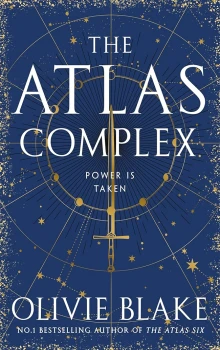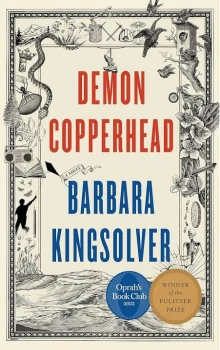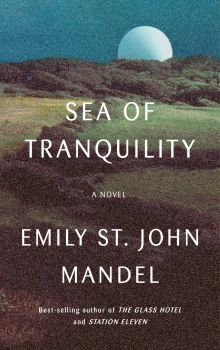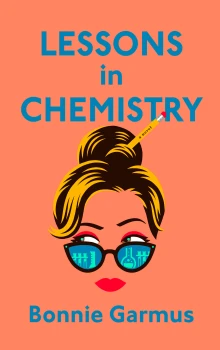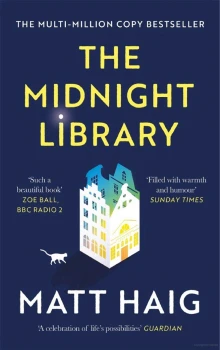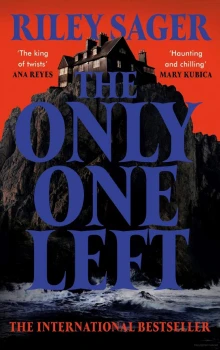· PARISA ·
Where were you?”
Dalton’s voice startled her from the corner of the rented flat she still wasn’t accustomed to. Part of her had been practical, determined to find a place for her things, for the remnants of herself she kept mislaying on the floor. Impractical lingerie, expensive shoes. She’d resumed her life as it was before, with one exception: the obligation to another human being, who apparently chose to haunt her like a ghost, sitting in the dark beside the open window.
“I told you, I was dealing with Nothazai.” It was a simple matter, simpler even than whatever Reina had planned, which was the equivalent of forced entry. Reina was going to bulldoze her way in, break down the door, put Nothazai’s only option to him like a gun to his head: fuck off or die trying. Parisa preferred a smoother opening than that. “I’m tired of knowing there’s so many people out there who want me dead,” she said, bending to unstrap one shoe. “I had a hunch that taking the Forum off the board would resolve a significant portion of my daily inconveniences, and I was right. Now I’ll only have to sort out the reprisal of the archives and Atlas Blakely, assuming I make it long enough to try.”
Dalton rose from the chair and came toward her, shirt unbuttoned, barefoot. He lived like a poet or an artist these days, always distracted, always in motion. Half-drunk cups of espresso littered the balcony, piles of books towering beside the hearth.
It was all very French between them now. Pastries and sex in the mornings, red wine and maniacal ramblings at night.
“Anything else?” he said expressionlessly. Parisa’s impulse to lie snagged on her supreme ambivalence, the place where her passion used to be.
“Yes.” She stepped down, one shoe off. “I spoke to Reina and Callum.”
Dalton’s expression was stony as she bent for the other shoe. “And were they any help?”
Again, she contemplated lying. Not that there was a better lie.
“No,” she said, pausing to straighten. Her head hurt. It was constantly hurting now, which she blamed—at least in part—on Dalton. Parisa had always been subjected to the thoughts of other people, which had mostly been background noise, annoyances, like elevator music but usually no worse than the buzzing of a fly inside her ear. Dalton’s thoughts weren’t like that.
She hadn’t realized that what she’d liked so much about him before had been the silence, the quietness inside her head whenever he was around. Now it was increasingly variable, loud and soft, shrieks and blasts of things, memories or ideas, she couldn’t tell which.
“You don’t need them,” Dalton said.
You know where to find me if you need me, Callum had said in her head before he and Reina had departed the Forum’s French offices.
I don’t need you, Parisa had replied.
Fine. Suit yourself.
She was a sore loser, it turned out. And there was no doubt she was losing, two steps back for each step forward. Somewhere, Atlas was being tweedily mirthful.
“I know,” said Parisa, but Dalton shook his head.
“No, I mean for the ritual,” he explained, which gave her pause. “You don’t need them,” he repeated. “It’s not a team effort—just choose someone. I didn’t consult the rest of my cohort before I picked up the knife.”
Parisa remembered the feel of the blade under Dalton’s palm. The memory he’d subjected her to, the palace he built to lure her in.
Her specifically? Maybe not. But if not her, then someone. Possibly anyone.
(Which wasn’t any more devastating a thought tonight than it would have been if she’d had it this morning. Or so she told herself, for now.)
“You won’t like it,” Dalton said. His thoughts were muddled and prickly with disappointment, something she suspected had to do with her. Seeing herself through his eyes was no worse, technically, than with anyone else. To him she was still beautiful, still the object of formidable desire, but she was also something that wouldn’t obey, a problem in need of fixing.
A bug in the code, she thought grimly.
“You won’t enjoy it,” Dalton continued, “but it will have to be done, and the sooner you get it over with—”
“I can kill Rhodes.” She might need to, though practicality suggested one of the others might be easier, less protected. Less paranoid, and therefore more likely to be caught. “I can kill any one of them.” Nico would be easy, Parisa thought with some perversity of fondness. She’d open the door and he’d scurry right in, wagging his tail, saying thank you, I love you, bye.
“Can you? You couldn’t kill the dreamer,” Dalton pointed out, referring to Nico’s beloved Gideon. “And you considered him a risk at the time.”
“That was different. I didn’t need him to die.” She finally took off the other shoe, rubbing at the indentation of the strap that had dug into her ankle. “This time I do.”
You’ll have to kill them to keep yourself alive. She’d been warned from the start, and yet how different things seemed to her now. How much she’d been willing to do before, which now felt vaguely exhausting and perfunctory, like a Pap smear. Something invasive for the benefit of her long-term health.
“You’re not giving up, are you?” said Dalton, and Parisa looked up, seeing another little blur of herself from his eyes. This one not so lovely.
“Giving up?”
“The empath helped you kill yourself once,” Dalton observed. Parisa shuddered at the snub of it, the wording. The others had always referred to it as a murder, as if Callum had been the one holding the weapon, but ultimately Dalton was more right.
Of course, Dalton was only right because Parisa had told him that, using those words herself. She’d put that knowledge in his hand, lighting it like a match. If it burned her now, that was her own fault. Such was the nature of intimacy. Of honesty, which she had never bothered with before.
“I don’t want to die,” she told him irritably. “I just want to be left alone.”
Another whorl of things, a fraction of lucidity. “That’s what he wanted, too.”
“I’m not—” Parisa felt herself snap, then forced herself down, quieting the sensation inside her chest that she already knew to be unwise. “I’m not the same as Atlas Blakely,” she said through gritted teeth. “I don’t need my own multiverse just to feel virtuous about making an exit door. I don’t want to give up. I just want—”
To live my life, she thought to say, but even she could hear how empty that sounded. Ten years, more than ten, and she kept saying the same thing, as if there was a finish line of happiness she still couldn’t touch. An ending that kept shifting out of reach.
Dalton seemed sympathetic. He came up behind her with a gentler sense of welcome, like maybe he’d rather be nuzzling her shoulder and feeding her sugar cubes from his hand than arguing with her just then. She leaned back against his chest, allowing a moment of complacency, something to preempt an episode of calculation.
A plan. She always, always had a plan.
“I can’t do it without the physicists,” Dalton said in her ear, and Parisa sighed, turning to face him.
“Why this experiment?” she said in a grumble. Fine, so she was a sore loser, but she was a pragmatist, too. Someone, somewhere, had to come to their senses, to choose a different path when the one they were on left their husbands for dead.
“Won’t there be other experiments? Better plans? The Forum is ripe for the taking,” Parisa pointed out. “We could do it tomorrow. We could do it right now and I guarantee you, Nothazai wouldn’t bat an eye—”
“This experiment is my birthright,” Dalton said. “It’s what I was born for.”
Internally, Parisa sighed. Men and their greatness—their callings. Why was any of it her burden? Exhausting. “You can find a new purpose, Dalton, people do it every day—”
“No,” he corrected brusquely. “It is why I was born.”
Parisa fell silent, wondering if she ought to be paying attention. If perhaps it might be worth returning to an old reflex; feeling around in his mind like pouring herself into the cracks she knew lived in the foundation, the many weaknesses in the frame.
“Watch,” he said.
Dalton sat down on the floor, cross-legged, like a small boy in a grown man’s body, the muscle of his chest and torso outlined by the flickering of an invisible flame. It was still mostly dark in the flat, illuminated only by the twinkles of iconic streetlamps down below the open window. Only those and whatever Dalton was making. Whatever Dalton could do.
There was no explanation for what she saw, what she could see. It was like the glitching pixelation she’d once seen inside the castle Dalton had built into his brain, the princely cage he’d once been trapped in. But unlike then, Parisa knew this to be real life. She understood this to be real, and it was like a child’s magic, something wonderfully alive, the way he made the darkness bend. He coaxed it, played with it, life from proverbial clay.
The way his hands moved looked familiar, the shape of them. She’d seen them that way before, sensual like that, passing over the curves she’d so long known and disregarded. He was molding the light, shaping it like a sculptor at the kiln.
It was only after his hands stopped moving—twitching from exertion, or maybe cramping with pain—that Parisa realized it wasn’t just her imagination. He wasn’t just re-creating the shapes of her curves. He was producing them from nothing.
She stepped toward him cautiously, tiptoeing forward to see what he’d made.
Her hair. Her mouth. Her hips.
“How did you—?”
Then the version of her lying on the floor suddenly opened its eyes, staring blankly up at Parisa, who scrambled backward in alarm. “Is that—?”
“She’s alive,” Dalton confirmed, rising to his feet and lowering a hand to the animation of Parisa, who accepted. It pulled itself up and stood, tilting its head to look blankly at the real Parisa, who suddenly needed a drink. Four drinks.
She stepped backward and the animation of her stepped forward. She walked in a slow circle around the flat, the animation of herself following her motions, turning with excruciating patience to keep a measured gaze on wherever Parisa was. She now understood what Dalton had meant over a year ago, how sure he’d been that only he could have created the animation of a grisly death that had been left behind in Libby Rhodes’s place. Parisa had never seen anything like this—except for when she’d seen it then. The only difference was that the previous animation had been a corpse, and this one . . .
Telepathically speaking, there were sparks of something, maybe curiosity, probably something more like awareness. Synapses firing, maybe, if that were possible to do from thin air.
“Dalton,” Parisa said in a low voice. “It doesn’t have any thoughts.” Not real ones. It wasn’t like the voices in Reina’s head, the plants who called her Mother. This thing didn’t have a mother; didn’t try to look for one.
“It’s life,” Dalton agreed. “Not brain.”
“But you can’t—” Parisa felt herself struggling to find the words for it, for her sudden need to vomit. “You can’t produce life from nothing. No one can.”
“I’m not,” he said with a shrug. “I’m producing it from something. Atlas knew that. The archives knew it. That was the whole point of me staying on.”
“But I thought your research was about the multiverse. A portal.” Parisa’s animation had lost interest in her. It was testing the use of its fingers and lips, practicing sultry poses. “I thought you wanted to make a new world.”
“That was the application of my research,” Dalton corrected. “That’s what we intended to do with what I already know is out there.” He seemed amused by her hesitation. “You don’t light a match just to watch a matchstick burn, Parisa.” A childish taunt, like a schoolyard bully.
“So then where do you get it from? Life.” Parisa watched her animation begin to pout, then smile. Then widen its eyes with wonder. Then carefully test the arches of its feet, pointing its toes like a ballerina before taking a cautious step.
“That’s the point of doing the experiment,” Dalton said.
“So you don’t actually know?” The animation took two steps, then locked its knees to push out its hips. A runway step, like the models from the noughties.
“I’m drawing it from somewhere. From something. There’s a chance it’s coming from something else out there—dark matter, the void, whatever you want to call it. The energy inside a vacuum is still energy, it still exists, and maybe I’m doing something with it. Or maybe I just killed something to bring this to life. Creation is entropy—cause enough chaos and maybe the sun will implode. Who knows.”
Dalton shrugged again as Parisa finally tore her attention away from the animation, which was cycling through a sun salutation, framing its naked body around the absence of the sun.
“What?” she said. Her animation found her left shoe, picking it up by one strap.
“It’s possible that opening one portal destroys another one,” said Dalton. “There’s no way to tell. We have to try it to find out. But the answer is out there, and I exist to find it. I exist because I’m the key. The bridge between whatever we are and something we can’t yet see.”
He looked at her hungrily, with an ache of guilelessness, with wonder. A small boy with a shiny new toy. Parisa had thought that so often when he looked at her, but now it was unnerving, because it implied something worse than innocence. It was undeveloped, empty of everything maturity was supposed to bring. Disappointment, yes. Disillusionment, yes, and pain, but also empathy. Compassion.
Self-control.
“I deserve an answer,” Dalton said. “I let him cage me for ten years. I kept myself locked up, I behaved, I was good.” I was good. Hadn’t she said that once? Dalton was growling it while Parisa’s animation suddenly stopped moving. It had donned both her shoes and fallen perfectly still, watching. Listening.
“The experiment has to be done properly.” Dalton ticked them off on his artist’s hands, his dexterous fingers: “Both the physicists. The naturalist. The seer. And me.”
“Atlas needs me,” Parisa realized suddenly. Dalton had said it before—used those exact words—but she understood why now.
She thought she’d understood when she saw the things that Libby had tried to hide from her, but Parisa was wrong, or half-wrong. Yes, Libby was the bug, but only now did Parisa understand why. She had seen glimpses of Libby’s guilt, her need for validation, and presumed them to come from a place of self-defense, even selfishness—but that was Parisa’s own bias. Parisa’s own pain.
Parisa knew the constancy of self-destruction that came from selfish choices. Parisa, who had chosen herself over someone else’s love, over living by the rules of so-called “moral” men—she understood that her selfishness was ugly. That however right she had been in her choices, they would still haunt her for the rest of her life, because they had necessarily come with pain. She had thought Libby’s pain was similar, that Libby was hiding the things she didn’t want the world to see, because Parisa knew what it was to be judged a selfish woman. Libby had asked what made Parisa’s ambition purer, and Parisa had known the truth: it wasn’t. But Parisa also knew what it was to be told she was too corrupt, too sinful, too impure to live, and she had chosen to do so anyway, because life was not something she had to be told she deserved.
But it hadn’t been pain in Libby’s mind. Parisa had seen the sense of something unresolved in Libby and presumed it to be guilt, but now she understood it was surety, absolution. It wasn’t doubt. It was certainty, too much of it. The bright-shining conviction in her own rightness, blazing like zealotry to light the path ahead.
It was all too much; the shine of it hurt Parisa’s head. It was too similar to the very certainty that Parisa now felt cleaving from herself, shucked from her like scales by the smallest of events—the loss of a man she hadn’t loved enough.
But hadn’t that always been the source of her danger? Not her magic, not her power, but her rootlessness—her willingness to light a match because she loved nothing on this earth too much to watch it burn? Certainty meant security of judgment. Certainty was polarity, as self-appointed judge. It wasn’t unlike Reina’s delusional sense of sureness, and yet it was totally different. Libby wanted to be a hero; Reina wanted to carry a hero’s burden. On Reina, that kind of world-making purpose was more like a beacon of light. It was pointless, of course, it would never work, but it still might drive others to follow her—Callum already had. By contrast, what could possibly grow on the path that Libby Rhodes would raze?
In answer to her suffering, Libby Rhodes had conferred upon herself the right to be virtuous. To be, without question, right. And that was perilous. It was worth fearing. The most dangerous person in the room wasn’t just whoever could still see where they were going—it was the person who couldn’t be stopped.
And now, Parisa understood that it was exactly what Atlas believed of himself.
So, Atlas needed her. Parisa knew it now—she understood how simple it actually was. Atlas did need her, because he was at least wise enough to recognize his own weakness. Atlas wanted it too badly, and trusted her to do what was right.
Specifically, he had trusted her to realize that this experiment was extremely fucked up from every possible angle and yet she had missed it, missed every single sign, because as much as Atlas had known the sins he was committing, he had also wanted to get away with it. He had wanted to do something horrifically irresponsible and as an act of ineffectual self-sabotage, he’d chosen Parisa—someone who had the power to stop him but wouldn’t. Someone far too selfish to actually say no.
Atlas had trusted her, and what had she done with that trust? He must have known she would misuse it. No wonder he hadn’t bothered to hunt her. He didn’t need to. His faith in her was pitted and flawed for a reason.
He must have known she’d let them both down.
She didn’t realize that she was staring blankly at the animation of herself until she saw herself suddenly convulse. Dalton had reached over for the corkscrew, the one left beside an empty bottle of wine, and casually punctured the animation in the navel, almost comically. Like someone sticking a pin in a balloon. Parisa watched herself bleed out and turn blue and felt, suddenly, frozen. Libby had realized Parisa was nothing, Reina had known it all along, and now it was finally Parisa’s turn. Finally, Parisa understood.
All this talk of worlds. Libby could try to make a new one. Reina could try to fix this one. They’d both be wrong, and they’d both come to the same conclusion she did now—that she was nothing and so were they—and still, Parisa could outlast them both until every hair on her head had turned gray, but for what?
For what?
“It’s not real,” Dalton said flatly, with something just shy of a laugh, like Parisa had been silly enough to believe in Santa Claus; like Dalton had caught her wishing on a star. The animation of Parisa had staggered to her knees and fallen forward, not even bracing for the impact. Her hair fell over her face, a pool of something that couldn’t have been blood spreading thinly across the floor, molten like gold in the darkness until all that remained were the shoes.
Heart thundering in her chest, Parisa took a step backward. Another.
“Don’t run,” Dalton said.
She took a third step and Dalton shook his head.
“Stop.” A warning. A fourth step. “Parisa. Listen to me. Whatever you think I might do—”
It wasn’t what she thought he might do. It was what she could see very plainly he was willing to do, which was a vast unknown bracketed only by extremes that warped and flickered in his head. She supposed that by some definition telepathy was failing her for the first time in her life, because she couldn’t say for certain what his next move would be. She felt, for the first time, a helplessness she hadn’t known before, witnessing the presence of a danger sign with no specific instructions. Would Dalton kill her? No, probably not, he seemed opposed to death, but who better than Parisa could project the many creative outcomes that could be—would be—worse?
She had always known Dalton was dangerous. It wasn’t that she’d been wrong about him but that she’d been right. She wanted to be dangerous, but she wasn’t. Reina was right about her. She was good at having the last word but that was it, and that was nothing.
The only thing Parisa truly was was angry. She couldn’t remember a time when she hadn’t been; when things had seemed normal or fine. It was like she’d been born with a window to the world that nobody else could see, or that everyone else ignored, and it was a horror that she alone had lived with, like Cassandra and the fall of Troy. If Dalton had recognized something in her, or she in him, it was this—this feeling that she was put here, made this way, for something. It had to be for something, because otherwise it was just a fucking curse.
Her brother Amin was fine. Wealthy and fine. Her sister Mehr was married, three babies, she didn’t appear to think about Parisa at all. The only person who had ever really been kind to Parisa had been Nasser, and he had always had an agenda. It wasn’t different just because he called it love. Parisa had been grateful to him, first, and then repressed by him, and then guilty for what she’d taken from him; by the fact that she had accepted his kindness only to cut and run. But all along she knew what she really was, which was angry at him.
Everyone wanted to own her. Everyone wanted to control her. She was beautiful on the outside, designed to be looked at, but on the inside was a blackened mess of spite and jealousy and rage that she alone had known was ugly underneath it all. Maybe Reina had seen it. Parisa had thought at times that maybe Reina could, because Reina didn’t look for beauty, didn’t look for desire at all—but even if Reina did see her, that didn’t make her truth less grisly. There were people capable of being seen and then there was Parisa, who would only ever be looked at. She’d thought Dalton was different, that she had found a partner in him, but he was still an arrow set in motion by Atlas Blakely, and she had never been the archer. She was just the fucking bow.
And Dalton was coming toward her now and Parisa understood very calmly that the magic she used against other people wouldn’t work for her this time. There were too many severed pieces in his head, like he’d lit a pipe bomb inside his former self. Had he always been that way? Maybe he had—Atlas had certainly implied it, and maybe she’d always been wrong about Atlas Blakely being a liar. Maybe the only thing Atlas Blakely had ever really done was tell a despicable truth.
“Stop,” Dalton said again, but Parisa heard run.
She turned to the flat’s only door, hearing Dalton’s blood rushing in his own ears, the way his senses were primed for a chase. Adrenaline, familiar as a pulse. She made as if to sprint through the door and instead pivoted, dropped to one knee, and punched him hard in the fucking ballsack with the full strength of her disappointment. She waited for him to fall to the ground before taking off toward the open window, thoughtless. Flying through it, wingless and barefoot, her skirt fluttering madly on the stillness of Parisian autumn air.
Physical magic wasn’t her strong suit, but survival was. Parisa pulled back on the force of the night like a set of reins, which in turn yielded like an obedient steed, allowing her to drop to the ground as if she’d jumped a few feet instead of three stories. Then she took off running, hair clinging to the sweat on her neck, deciding to make a few changes in her life. No more dresses designed to be braless. Her life had been a constant series of escapes and she had to grow up and accept it, to live like it, like a person on the run.
Because this was the truth: she had killed herself once with Callum’s help, and what she had told no one about that day was that she still remembered what it felt like. She remembered the fall, the teetering sense of oncoming relief—but it hadn’t actually happened that way. It wasn’t blissful, it wasn’t ecstasy, there wasn’t a climax. It was only a fall, and at the bottom of that leap was nothing. Maybe she had no purpose, and maybe that was fine. Maybe all Parisa had was rage and fear and maybe those things were ugly, maybe when the rest of her hair turned gray she’d be nothing but a shriveled-up ball of disappointment and pain, but that didn’t have to cheapen her.
Maybe her only purpose was to survive, which was fucking difficult, and so maybe that was enough.
She’d left without her phone, without a wallet, without the motherfucking shoes. She stumbled and the blisters on her feet were raised and raw, and the hurt of it was temporarily blinding. She realized it was tears only belatedly, when she discovered that she had nowhere to run, nowhere to go. She didn’t think Dalton would bother to go after her. He only wanted one thing, and Parisa was struggling to find the energy to stop him just to save the world right now. Could it end, really? No. The world would go on. Life as they knew it ended every day, little pieces of it at a time. Hope was robbed, peace was stolen, the world still turned regardless. They could all drop dead tomorrow and the planet’s orbit would go on unchanged. Take it from any single one of Reina’s plants.
Where the fuck was Atlas Blakely now? Parisa coasted to a stop, the flame in her chest burning and burning as she felt the presence of a threat, the constancy of it. Always someone these days, following her like a shadow. This one wasn’t law enforcement; a medeian, she felt sure of it, listening to the drone of telepathic defenses. The would-be assassin shifted his jacket aside and Parisa clocked something she hadn’t before—the logo on something she hesitated to call a handgun. This wasn’t a normal mind, and therefore likely not a normal weapon. Was the insignia a W?
Didn’t matter. Always someone, always something. She sent him away from her direction with what little of her energy remained.
You were supposed to give me more, she thought at Atlas angrily. She was supposed to have been able to stop running, to stop lying—two years with all the arcane knowledge in the world and she still didn’t know how to live. You promised me more than this, and me, I’m the idiot, I believed you when you said there was something else waiting for me. You didn’t ask me if I needed meaning because you already knew, you should have known that my answer was yes.
She wiped her eyes and laughed at the smear of black across her palm. Around her people were wondering if she’d gone insane, if they should call the police, if she needed help or if she was crazy, and she realized with a little spark of hysteria that despite all of that, despite it all, at least four people were still staring at her breasts. This was humanity! Why should she care anymore, why had she ever cared, what had the world ever done for her? Why should it matter if Dalton swallowed them up and used their remains to remake the universe for his own twisted sense of purpose, why did it matter if Reina still believed in bending the whole thing to her will, what was the point of even trying, where should she go, what should she do, who should she become with the time she had left, which was ticking by, tickticktick like the clock in Tristan’s heart, like the countdown to destruction that Parisa had caught a glimpse of inside Libby Rhodes’s mind. There it went, another second, another, her feet on the pavement in aching, unsteady steps, just keep going, go. Go. Go.
Go.
Would anyone listen to her? No, yes, maybe. Maybe that was the part that was different, because she wasn’t alone, not actually. At least one person had thrown her at least one life vest, so okay then. Okay. It would hurt, it would be shameful, someone would probably hold it against her for the duration of whatever obscurity she had left, but swallowing her pride would sting at first and then, eventually, it would fade.
This was it, the chronic condition—the only meaning Parisa had left in life. It wasn’t a secret society, it wasn’t an ancient library, it wasn’t an experiment that had taken two decades to design, it was waking up every fucking morning and deciding to keep going. The tiny, unceremonious, incomparable miracle of making it through another goddamn day. The knowledge that life was mean and it was exacting. It was cruel and it was cursed; it was recalcitrant and precious. It was always ending. But it did not have to be earned.
Parisa shivered and tried to remember the thing in Libby’s mind amid the wreckage; the specific thing that Libby hadn’t wanted Parisa to see. Blood on the office floor, okay, so Libby had killed someone, that wasn’t unexpected. Parisa had killed someone too, more than one someone, but there was something else, something more concrete in the realm of Libby’s thoughts of Atlas Blakely. Something recent, knowledge she hadn’t shared.
Of course—Atlas Blakely. Even the Caretaker had a history, a point of origin, some place with which to begin. If he wouldn’t chase her, then Parisa would chase him. There, some velocity. A destination, or at very least a direction. A next step to take, if she chose to keep going.
Okay, Parisa thought, orienting herself. Okay.
Then she took off into the night.
